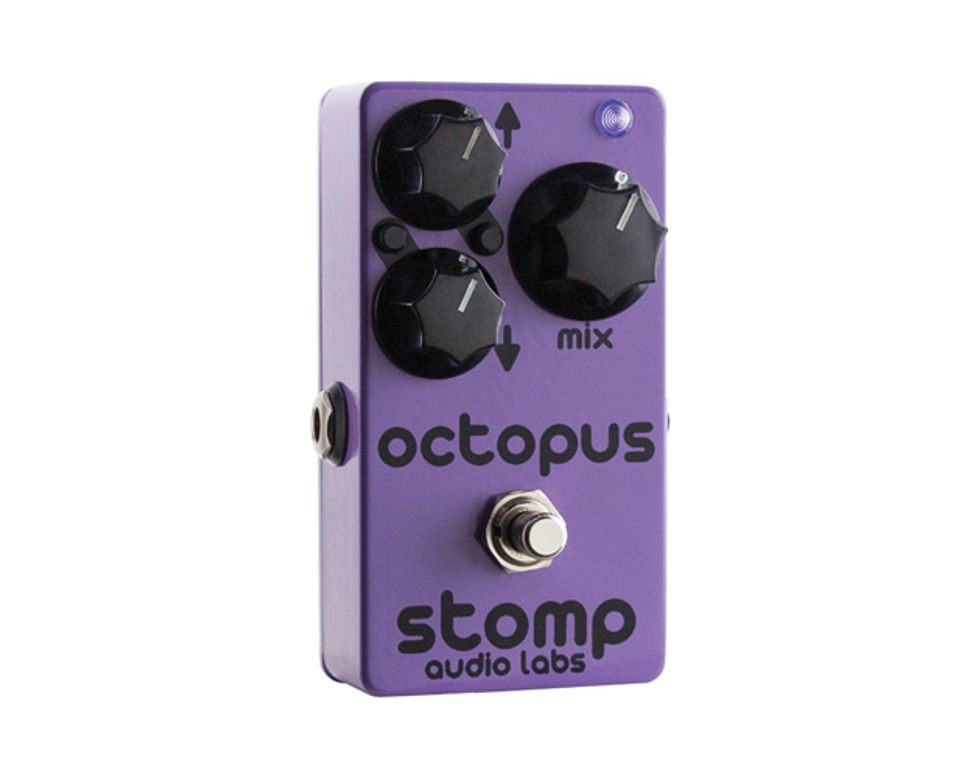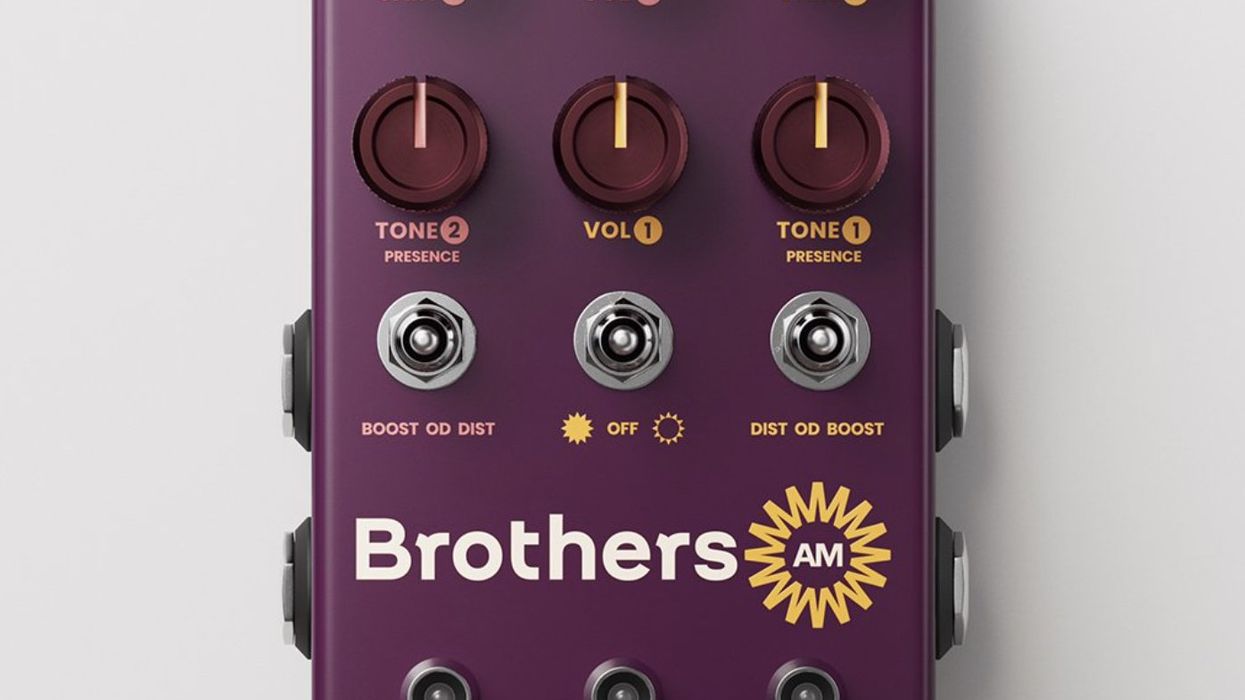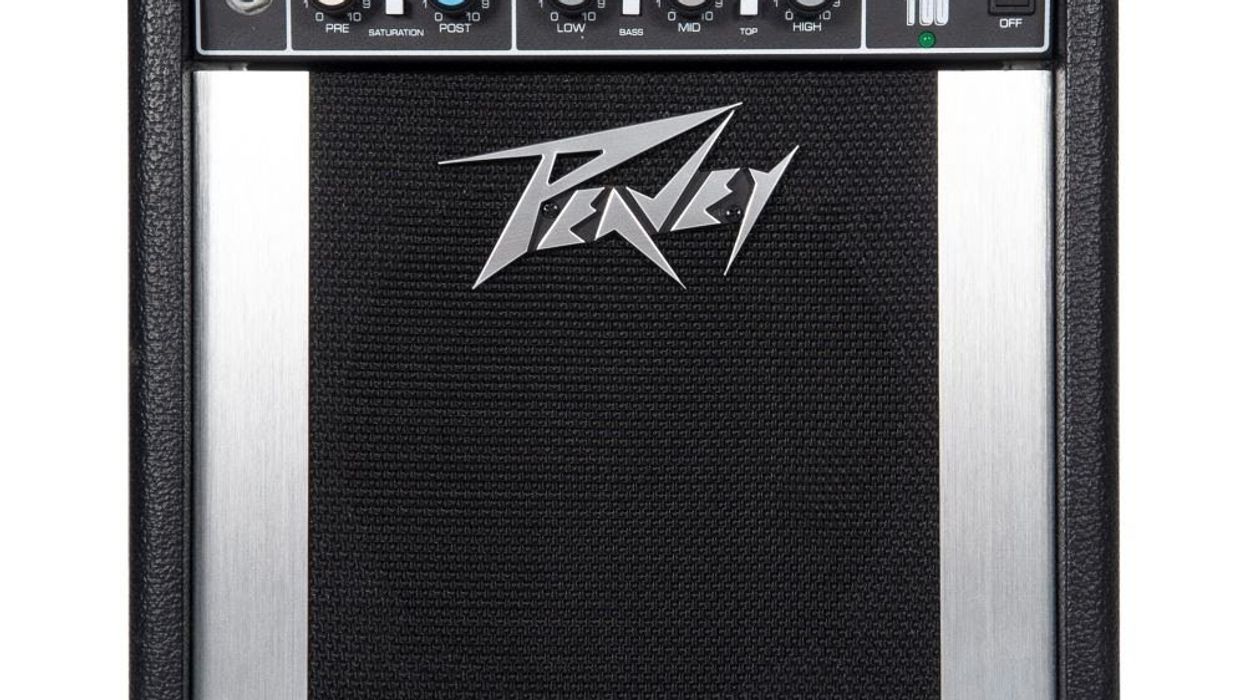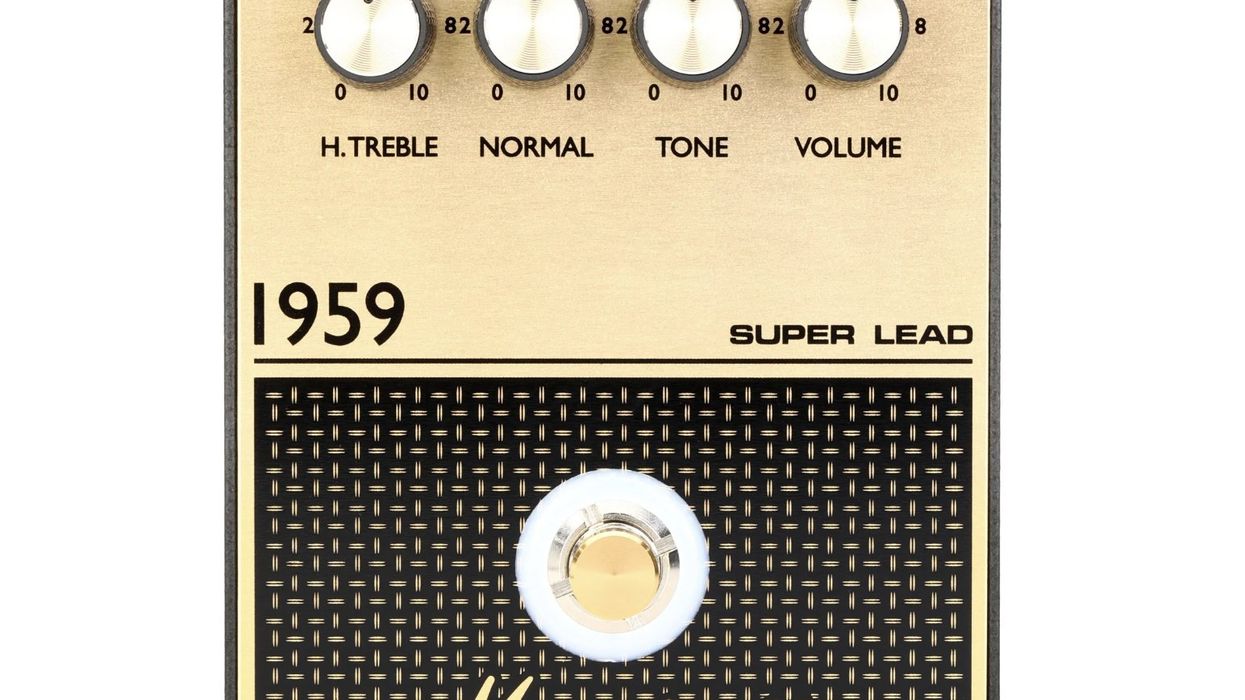Stomp Audio Labs’ all-analog Octopus produces awesome weaves and webs of fuzzy octaves. It enables these impressive harmonic entanglements through parallel, blendable, octave-up and octave-down circuits. But it takes these textures many steps further by providing a switchable fuzz for each octave and a powerful master mix control. If you’ve ever needed to move from the bassy growl of an analog synth to the squawk of vintage fuzz or the robotic chirp of chiptunes, this little gadget dishes the whole party platter.
Octaves With Ease
The Octopus’ simple but effective control layout looks unorthodox. But the asymmetrically large mix knob—which blends octave effects with your dry signal—invites expressive, on-the-fly adjustments with your foot. The two smaller knobs alter the level of each octave effect, and small buttons adjacent to each octave level knob engage dedicated fuzz circuits. Needless to say, the possible tone variations from these five simple controls are vast. A side-mounted 9V barrel adapter (center-pin negative) can be used to power the unit, or you can use a 9V battery to produce the juice.
Stretching Its Tentacles
I did my first test of the Octopus at bedroom volume through a Fender Champ 600. A lot of effects with strong or complex octave overtones can turn the Champ’s 6" speaker to mush. Octopus, however, sounded clear and detailed with the mix dialed in right—even with a muscular Les Paul. As with many octave effects, some pickup and effect combinations are clearer than others, and low notes from a bridge pickup can make extreme octave-down settings sound glitchy and adversely affect note tracking. Moving to the neck pickup and rolling back guitar tone brings individual notes into focus and improves tracking. But in general, home recording devotees will be encouraged by how good the Octopus sounds with small rigs and at moderate volumes.
Ratings
Pros:
Great range of control. Fuzz capabilities for both octaves.
Cons:
Control of fuzz intensity could be a plus.
Tones:
Ease of Use:
Build/Design:
Value:
Street:
$199
Stomp Audio Octopus
stompaudio.com.br
The dimensionality and richness of the Octopus became much easier to hear through bigger amps. And with an Orange OR50 at the receiving end of Octopus’s output, I started to hear much more of the pedal’s colorful range and depth. I got very cool Octavia-style tones with the mix just on the dry side of noon and a fuzzy upper octave blended in around 2 o’clock. The sub-octave fuzz utilizes a square wave that evokes gooey analog synth output. It seems a bit quieter at 50/50 than other settings, and you get the most pronounced and cutting versions of that tone when you use a bridge-position single-coil. That can mean a lot of additional noise, though it’s not terribly problematic in the context of a live band.
For the most part, the Octopus works very well with other effects pedals, though, predictably, it’s a little more sensitive to the order of effects in your chain. When toying with Octavia-style tones, I found it helpful to put a dirt box before the Octopus (in this case, an Ibanez TS9) to help accentuate and sustain the fuzz tone. You don’t even really need to goose the gain much to excite the Octopus into sharing extra harmonics. A little overdrive or boost (and a carefully tuned wet/dry blend) also helps stave off some of the glitchy harmonic crumbling that comes with full-step bends in the upper regions of the neck. And though I thoroughly enjoy the sound of a sputtering octave, I found myself flipping on the TS9 at the end of a few solo runs to enhance sustain and bask in the extra-lingering glow of the Octopus’ hip fuzz voice.
The Verdict
The Octopus has a cool analog character and richness that, in most respects, sounds fatter and more natural than most digital octave pedals and more interesting than a lot of more pedestrian analog octave effects. Tracking is excellent. The level of mix control that Octopus provides, plus the ability to dial in fuzz for each octave, means you can conjure very specific levels of textures that run from vintage Hendrix to more experimental fare. The $199 price might look a tad dear at first blush, but when you consider the diversity of sounds, Octopus starts to feel like a really good deal.


















